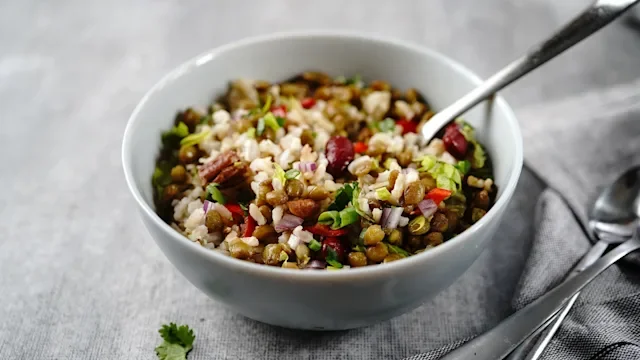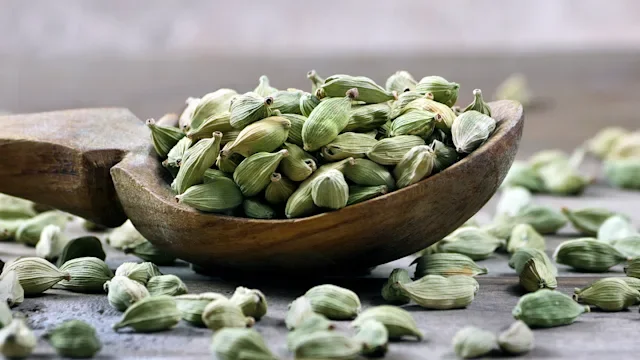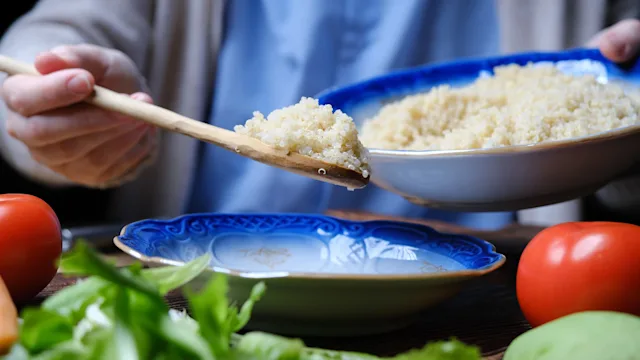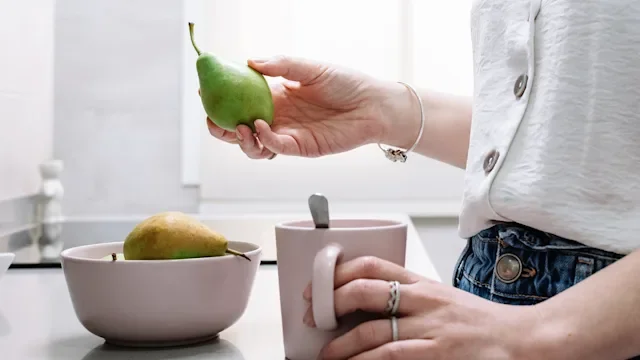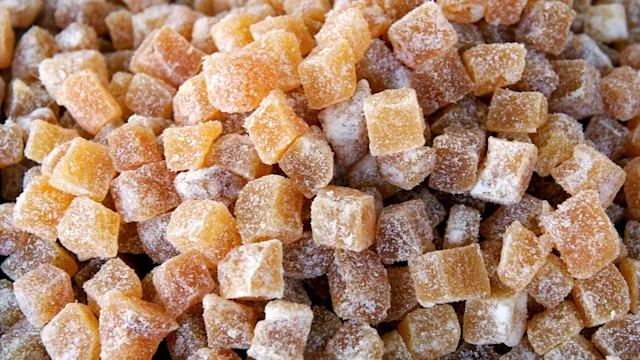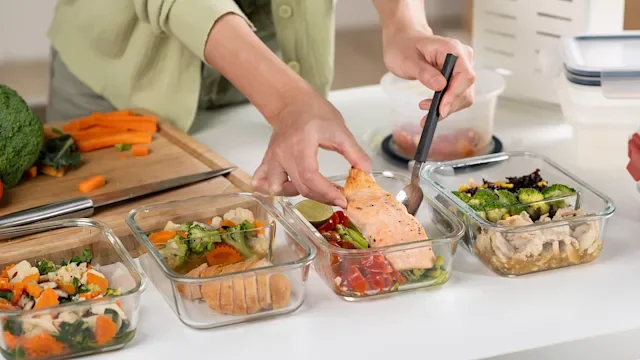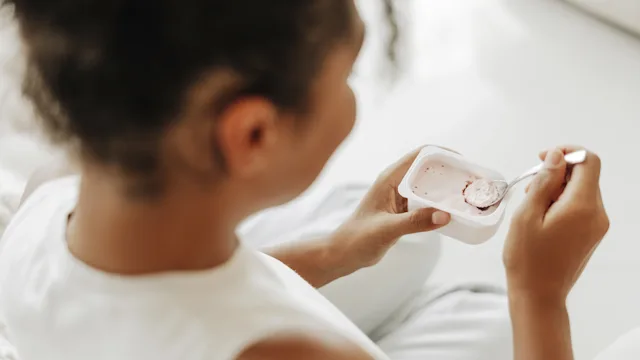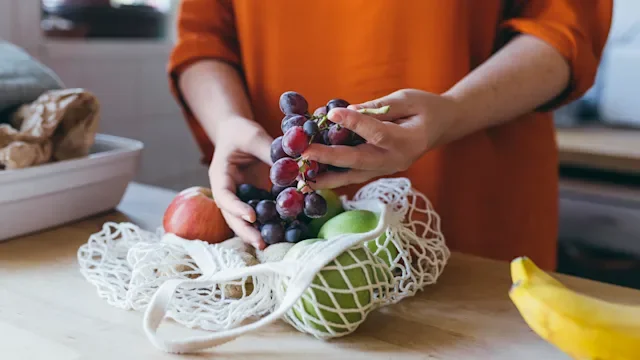Key takeaways:
Some people drink pickle juice as a sport supplement to relieve muscle cramps or prevent dehydration.
Pickle juice from fermented pickles contains beneficial bacteria that can boost gut health. But shelf-stable pickles in a jar aren’t fermented, so they don’t provide this gut-healthy bacteria.
Since it’s high in sodium, pickle juice should be consumed in moderation. It may not be suitable for people with heart or kidney disease, or those on sodium-reduced diets.
Once that last pickle spear in the jar has been eaten, most people toss out the briny pickle juice that remains. But some people put that liquid to use by using it as a sports drink. Pickle juice has become popular to drink before, during, and/or after exercise to help relieve muscle cramps and prevent dehydration.
What’s in pickle juice, and can it actually provide these health benefits? Read on to see what science says about the potential benefits of pickle juice.
Is pickle juice good for you?
Pickle juice may help with muscle cramps. Some people drink it before exercise to prevent cramps. Others sip it when a cramp hits to provide quick relief. Pickle juice may also help with hydration. It’s popular as a postworkout drink to replenish electrolytes lost through sweat.
But pickle juice is high in sodium, so it should be consumed in small amounts. In other words, don’t sip pickle juice all day long — that’s what water is meant for.
Pickle juice isn’t listed in nutrition databases. But we can draw some conclusions about its nutrients based on what’s known.
Nutrients in pickle juice from store-bought pickles
The nutrition facts label on pickle jars is sparse. Aside from cucumbers, the ingredients in pickle juice from shelf-stable, jarred pickles are usually:
Water
Vinegar
Salt
Herbs
Spices
These ingredients don’t contain calories, protein, carbohydrates, or fat. But pickle juice is high in sodium (salt). The exact amount varies by brand, and it’s unknown exactly how much is in the juice, since it’s not intended for drinking. But as an example, one popular pickle brand has 330 mg of sodium per pickle spear, which is 14% of the daily value (DV). The straight juice likely contains more sodium than that.
Some pickles are fermented, so they contain beneficial bacteria that can boost gut health. These fermented pickles contain water, salt, and spices, but no vinegar. These pickles are located in the grocer’s refrigerator, not on the shelf.
There’s no gut-healthy bacteria in shelf-stable pickle jars or pasteurized pickles.
What’s the best drink to stay hydrated? For most people, water is ideal for hydration. But other drinks can also help you stay hydrated. Here’s what’s worth trying — and what to avoid.
Which foods prevent muscle cramps? Getting enough sodium, potassium, magnesium, and calcium in your diet can help, so try adding these foods.
How to cure dehydration fast: The best choice for rehydrating quickly depends on how dehydrated you are and what’s causing the dehydration.
Nutrients in pickle juice ‘shots’
Before you go to the trouble of straining the juice from your pickle jar, note that some brands make pickle juice sports supplement drinks. Usually these are packaged as 2 oz or 2.5 oz “shots.”
These drinks contain similar ingredients to what you’d find in a jarred pickle juice, but with added potassium and magnesium meant to help prevent dehydration. And some manufacturers also add other nutrients such as vitamin C.
Most pickle juice shots have about 400 mg to 500 mg of sodium and 50 mg to 100 mg of potassium per 2.5 oz serving. That’s a lot of sodium, but that’s on purpose — it’s meant to replace sodium lost through sweat. Pickle juice isn’t really meant for drinking otherwise (choose water instead).
Read more like this
Explore these related articles, suggested for readers like you.
Compared to electrolyte sports drinks like Gatorade and Powerade, pickle juice shots are higher in both sodium and potassium. They aren’t a good choice for everyone because of the sodium. But some people prefer pickle juice shots to traditional sports drinks because they don’t contain added sugars or food dyes.
What are the benefits of drinking pickle juice?
There’s some research to support claims that pickle juice may benefit your health.
Relief of muscle cramps
Dehydration due to low levels of electrolytes (such as sodium) is one cause of muscle cramps, so it makes sense that salty pickle juice could help. Research suggests that pickle juice may relieve muscle cramps in athletes. One study showed that pickle juice may help ease leg cramps in people with liver cirrhosis.
But research shows that in some people, muscle cramps occur even when electrolyte levels are normal. So, if pickle juice isn’t helping to restore electrolytes, how is it helping with muscle cramps? The lip-puckering vinegar in pickle juice may be responsible.
Experts think some muscle cramps are caused by the nervous system. When muscles get tired, nerve cells called alpha motor neurons cause repeated muscle contractions. Some experts believe that the vinegar in pickle juice stimulates a reflex in the back of the throat that decreases alpha motor neuron activity throughout the body. This relaxes the muscle cramp, often providing relief in just 3 or 4 minutes.
Blood sugar management
Consuming vinegar (especially apple cider vinegar) may help manage blood sugar levels. Since many brands of pickles contain vinegar, researchers have explored whether pickle juice has the same effect.
One small study tested whether eating pickle juice popsicles before a high-carbohydrate meal could have an effect on postmeal blood sugar levels. The results showed that after a meal, the blood sugar levels of people who ate the popsicles was lower than the blood sugar levels of those who didn’t eat the popsicles. So drinking pickle juice — about ¼ cup before a meal — may have a similar effect to consuming plain vinegar.
Of course, pickle juice isn’t the solution to blood sugar management, especially for people with diabetes. You can work with your healthcare team to create a plan that works for you.
Hydration
There aren’t studies on pickle juice’s effect on hydration, so the science here is unclear. But we know that when you sweat due to exercise or hot weather, you lose fluids and electrolytes like sodium and potassium. Pickle juice contains fluid and electrolytes, so it would make sense that it can provide hydration.
But the amount of electrolytes in pickle juice may not match up with the amount of electrolytes you lose when you sweat. In other words, commercial pickle juice shots are designed to match your sweat loss. But chugging liquid from a pickle jar will likely provide too much salt. So, if you want to use pickle juice after sport, it’s a good idea to find one made specifically for sweat loss.
Digestive health
Shelf-stable pickles made with vinegar and found on grocery store shelves aren’t truly fermented. They don’t contain beneficial bacteria for gut health.
But fermented pickles — often found in the refrigerated section of grocery stores — are made using a salty brine that allows good bacteria to grow and flourish. This ferments and pickles the cucumber. The “good” bacteria that result can boost your gut health.
Of course, you can also get good bacteria from yogurt, kefir, sauerkraut, kimchi, and many other foods and drinks. So you don’t have to drink pickle juice to get these benefits.
Hangover cure
Some people recommend drinking pickle juice to cure a hangover, but there are no studies to show whether this works. The electrolytes in pickle juice may help with dehydration, but pharmaceutical-grade oral rehydration solutions (such as Pedialyte) are probably a better option.
What are the risks of drinking pickle juice?
Most pickle juice is very salty. It’s unknown exactly how much sodium is in the pickle juice from jarred pickles. And it varies by brand. But the amount of sodium in one pickle spear suggests that the sodium content of the juice is very high.
Packaged pickle juice drinks contain about 470 mg sodium per 2.5 oz shot, which is a lot of salt for a small amount of liquid. If you drink too much pickle juice, you’ll likely exceed the upper limit for daily sodium intake, which is 2,300 mg/day.
So, drinking a small amount of pickle juice as a sport supplement should be safe for most healthy people. But pay attention to the amount you drink. It’s always a good idea to check with a healthcare professional before trying any new supplements.
Who should not drink pickle juice?
Since pickle juice is high in sodium, you shouldn’t drink pickle juice if you are on a sodium-restricted diet for a health condition, such as:
High blood pressure
Heart disease
Congestive heart failure
Kidney disease
And, since many types of pickle juice contain vinegar or acid, people who need to avoid highly acidic foods may also want to limit it. This may include people who have:
Stomach ulcers
Heartburn
Gastroesophageal reflux disease (GERD)
The bottom line
Pickle juice is used as a sports supplement to prevent or relieve muscle cramps, and to provide a quick source of fluid and electrolytes for hydration. There’s less evidence that pickle juice works as a hangover cure, but it may help replenish sodium levels if you are dehydrated from alcohol. If you’re drinking pickle juice for gut-health benefits, make sure to choose a fermented, unpasteurized type.
Whether you’re using pickle juice from store-bought pickles or drinking prepackaged pickle juice “shots,” pay attention to the amount you drink since pickle juice is high in sodium. And if you’re on a sodium-restricted diet or need to avoid acidic foods, you may be best off skipping the pickle juice.

Why trust our experts?



References
Behera, S. S., et al. (2020). Traditionally fermented pickles: How the microbial diversity associated with their nutritional and health benefits? Journal of Functional Foods.
Center for Applied Nutrition. (n.d.). Gastroesophageal reflux disorder (GERD). UMass Chan Medical School.
Johnston, C. J., et al. (2009). Frozen pickle juice reduces mealtime glycemia in healthy adults. The FASEB Journal.
Marosek, S. E. H., et al. (2020). Quantitative analysis of the acetic acid content in substances used by athletes for the possible prevention and alleviation of exercise-associated muscle cramps. Journal of Strength and Conditioning Research.
Miller, K. C., et al. (2010). Reflex inhibition of electrically induced muscle cramps in hypohydrated humans. Medicine & Science in Sports & Exercise.
MyFoodDiary. (n.d.). Vlasic kosher dill pickle spears.
National Academies of Sciences, Engineering, and Medicine, et al. (2019). 9: Sodium: Dietary reference intakes for toxicity. Dietary Reference Intakes for Sodium and Potassium.
Olendzki, B., et al. (2024). Patient education: Low-sodium diet (Beyond the basics).
Peikert, J., et al. (2014). Pre-exercise ingestion of pickle juice, hypertonic saline, or water and aerobic performance and thermoregulation. Journal of Athletic Training.
Pickle Power. (n.d.). 12/2.5oz extra strength pickle juice shot.
Shishehbor, F., et al. (2017). Vinegar consumption can attenuate postprandial glucose and insulin responses; a systematic review and meta-analysis of clinical trials. Diabetes Research and Clinical Practice.
Sulzer, N. U., et al. (2005). Serum electrolytes in Ironman triathletes with exercise-associated muscle cramping. Medicine & Science in Sports & Exercise.
Tapper, E. B., et al. (2022). Pickle juice intervention for cirrhotic cramps reduction: The PICCLES randomized controlled trial. The American Journal of Gastroenterology.








